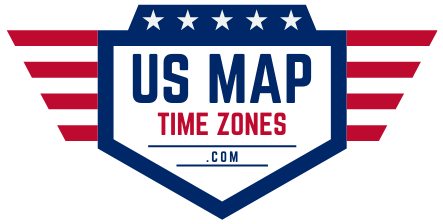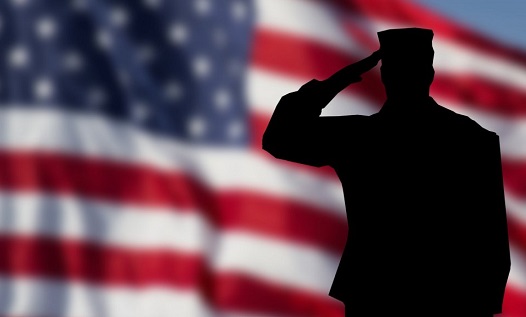3 Things veterans want you to know on Veterans Day
We spend a lot of time listening to what other people think we should do and say on Veterans Day. But what do the giants themselves want us to know? (Things veterans want you to know on Veterans Day)
These three tips from veterans of various branches, jobs, and ranks will help us remember what is at the heart of Veterans Day and how we can honor our veterans on November 11.
-
A Day of Reflection, Not a Celebration
Many people consider Veterans Day to be similar to Memorial Day – as a day to remember those who gave their lives for our country. Others equate the holiday with Independence Day, a celebration of our nation’s independence. Aviation Safety Officer, Retired Chief Warrant Officer James S. According to Hanson, it is not.
“I want people to understand what [Veteran Day] means. It’s not a memorial, go to the cemetery day … It’s not a day to have a beer-drinking party. It’s a day to remember what veterans have done.” did and what they do,” he said.
Another veteran, who wished to remain anonymous, agreed, saying, “[veterans] think of Veterans Day as a day of reflection, while I see civilians celebrating.”
Retired Air Force Captain Rodney Howarth believes the difference in the way the holiday is celebrated is because “the military experience [is] usually something that non-physicians are never exposed to. … The general public [has] little understanding of how dire the situation can be.”
As a military spouse, you are all too familiar with the seriousness of the commitment service members make, and considering this is an important part of honoring our veterans.
Another veteran said, “[On Veterans Day] I think about how glad I am that there are other people who make this choice to serve and represent the nation. It’s a big commitment, and an As a service member, I applaud all [other] men and women who have chosen to serve.”
When you’re talking to your veterans this year, make it a point to ask them about their time in service. Questions such as, “Why did you decide to serve?” and, “What is or was your favorite part of serving in the military?”
Here are some conversation starters that will let your veterans know that we are interested, listening, and, most importantly, grateful. (Things veterans want you to know on Veterans Day)
-
Day of Gratitude
While we all have good intentions when we give a quick “thank you” to a service member, many veterans interviewed reported growing weary of the obligatory “thank you for your service,” said one retired Marine.
On the other hand, some veterans don’t feel the need to say thank you. According to Hanson, “Most career military [members] are answering the call to defend and protect the people and country they love.”
Retired Lt. Robert Yates, helicopter aircraft commander and search and rescue pilot, agrees. “This may surprise you, but I’m not comfortable with ‘thank you for your service,'” he says.
“Most of us were just doing what we had to do. It wasn’t some great discovery, it was just doing what was expected of us.”
Another veteran said, “People have different callings in life, so I don’t necessarily feel that my choice to serve in the military has earned me more or less gratitude than any other position of service.” “I don’t feel like I deserve a ‘thank you’… I signed up, did my job, and went home, like everybody else.”
Recognizing that most veterans serve to fulfill an inner calling and a sense of personal responsibility—not to seek fame and glory—will go far beyond thanking them for their service.
Relating to your veteran on your mutual pride and love for this nation and its people will express your gratitude for their service in a personal and meaningful way. (Things veterans want you to know on Veterans Day)
-
Mindful Conversation Day
“Veteran” is not a one-size-fits-all title. Even within the same unit, each service member will have a different experience – some painful, some victorious, and some both.
Guessing about a service member’s experience can do more harm than good, so be sure to approach your conversation carefully.
“[People] think of some generic soldier figure overseas fighting epic battles for their freedom, but soldiers are all unique individuals with incredible diversity who make many sacrifices daily,” said one veteran.
Many lesser-known jobs within the military are often overlooked, despite the important role they play in the success of our military.
It is important to acknowledge the valuable contributions made by these “small” roles in addition to the headline-grabbing missions.
“We remember best the things that most impressed or bothered us,” Yates said. “It’s our nature. So when a combat veteran thinks of his time in the service, the first thing that comes to mind is the time when his safety was at greatest risk.
In naval aviation, the saying that your job is 99% boredom and 1% sheer terror. I remember those moments very clearly.” (Things veterans want you to know on Veterans Day)
While we want to express our gratitude on Veterans Day, remember that many veterans may be reliving difficult moments from their time in service. As with any other interaction, be sure to “read the room” before starting a conversation.
For some, Veterans Day is just another federal holiday. But for many, it is a day of reflection, gratitude, and conversation.
This year, let’s be sure to honor our veterans in the best possible way by considering the importance of their service, expressing our gratitude in meaningful and personal ways, and fostering thoughtful conversations that will help them reminisce about those memories.
Talk about what they want to remember. Without forcing them to relive the memories they want to avoid.
We hope you like our article on Things veterans want you to know on Veterans Day.
Happy Veterans Day.
Thanks for visiting US Map Time Zones

